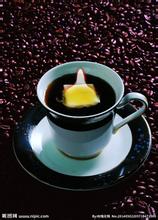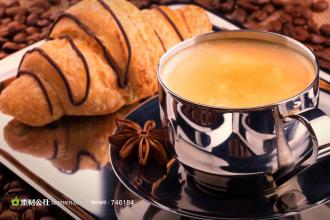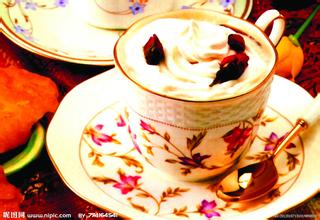Introduction to the characteristics of the flavor and taste of Puerto Rican coffee beans in the manor area
Grown only on three farms in the south-west of the island, Yocote Coffee has a strong aroma and a long aftertaste. This coffee sells at a high price and its aroma rivals that of any other coffee variety in the world. In the Yauco region, the coffee is owned and operated by local planters. The mountain climate here is mild, the plants have a long maturity period (from October to February of the following year), and the soil is of high quality clay. Some older varieties of Arabica coffee are grown here, although their yields are lower than those of other varieties, but they are generally of high quality. The people here have been adopting an ecological, intensive farming method, using only low toxicity fertilizers and chemicals, and adopting mixed crop cultivation measures to make the soil more fertile. When it came time to pick the beans, people walked back and forth between the trees, picking only the fully ripe beans, which were then washed in a roller for 48 hours.
Yocote Select beans are kept in their shells until they are shipped, and the skins are not removed until the order is shipped to ensure optimum freshness. U.S. government officials, such as the FDA and USEA, are also present at the time of shipment submission and work to monitor compliance with federal regulations. There are also staff from local evaluation committees who take samples of one bag out of every 50 bags and qualify them using international gauges.
Jaime Fortuńo, president of the agency Escogido Yauco, silently attends to all this work every year, even the smallest details. Fortuno is an investment banker who graduated from Harvard Business School. He was determined to seize every opportunity to carve out a market for premium Puerto Rico coffee. He expects a maximum yield of 3000 bags of 45 kilograms each per year, less than 1 percent of the island's total coffee production.
Yocote Choice is a mesmerizing coffee that is full of flavor, bitter, nutritious, fruity and worth tasting. Even Taylors in Harrogate, England, imported 50 bags of Yocote Coffee. Puerto Rico had low wages, with an average hourly wage of $4.20 in 1991. Nevertheless, manual workers earn more than workers in many other coffee-producing countries, as long as Hawaii and Jamaica are comparable. Another problem facing the coffee industry in Puerto Rico is that Puerto Rico people in the Caribbean are relatively literate and therefore have better job prospects. Grown only on three farms in the south-west of the island, Yocote Coffee has a strong aroma and a long aftertaste. This coffee sells at a high price and its aroma rivals that of any other coffee variety in the world. In the Yauco region, the coffee is owned and operated by local planters. The mountain climate here is mild, the plants have a long maturity period (from October to February of the following year), and the soil is of high quality clay. Some older varieties of Arabica coffee are grown here, although their yields are lower than those of other varieties, but they are generally of high quality. The people here have been adopting an ecologically conservative, intensive farming method, using only low toxicity fertilizers and chemicals, and adopting mixed crop cultivation measures to make the soil more fertile. When it was time to pick the beans, people walked back and forth between the trees, picking only the fully ripe beans, and then washing them in a roller for 48 hours.
Today, Puerto Rico gourmet coffee is exported to the United States, France and Japan. Coffee in this country is generally carefully cultivated, pure taste, aroma, heavy particles, which are among the best brands in the world. The best coffee is Yauco Selecto, which means "select." Grand Lares Yauco is grown in the south-west of the island and Lares coffee in the south-central part.

Important Notice :
前街咖啡 FrontStreet Coffee has moved to new addredd:
FrontStreet Coffee Address: 315,Donghua East Road,GuangZhou
Tel:020 38364473
- Prev

The Flavor and Taste of Burundian Coffee beans the characteristics of the manor area introduce the origin of Burundian coffee
(I) Forces for the Defence of Democracy in Burundi (Forces pour la Dfense de la Dmocratie au Burundi, FDD), the ruling party, dominated by the Hutu. Once the largest rebel force, it reached a ceasefire agreement with the transitional government in November 2003, formally became a legitimate political party in September 2004, and won elections at all levels in 2005 to become the ruling party. 2007
- Next

The rich taste of Dominican coffee the characteristics of the manor producing area introduce the Dominican boutique coffee
Coffee in Dominica is grown in highlands and lowlands, and its taste is slightly different. The upland is sour, but the taste is rich; the lowland is less sour and tastes smoother. Boutique coffee has become popular in recent years. High-quality coffee beans produced by some Dominican estates have a rich aroma, mellow taste and moderately bright sour taste, and have been bought with the more famous Puerto Rico beans or teeth.
Related
- Detailed explanation of Jadeite planting Land in Panamanian Jadeite Manor introduction to the grading system of Jadeite competitive bidding, Red bid, Green bid and Rose Summer
- Story of Coffee planting in Brenka region of Costa Rica Stonehenge Manor anaerobic heavy honey treatment of flavor mouth
- What's on the barrel of Blue Mountain Coffee beans?
- Can American coffee also pull flowers? How to use hot American style to pull out a good-looking pattern?
- Can you make a cold extract with coffee beans? What is the right proportion for cold-extracted coffee formula?
- Indonesian PWN Gold Mandrine Coffee Origin Features Flavor How to Chong? Mandolin coffee is American.
- A brief introduction to the flavor characteristics of Brazilian yellow bourbon coffee beans
- What is the effect of different water quality on the flavor of cold-extracted coffee? What kind of water is best for brewing coffee?
- Why do you think of Rose Summer whenever you mention Panamanian coffee?
- Introduction to the characteristics of authentic blue mountain coffee bean producing areas? What is the CIB Coffee Authority in Jamaica?

